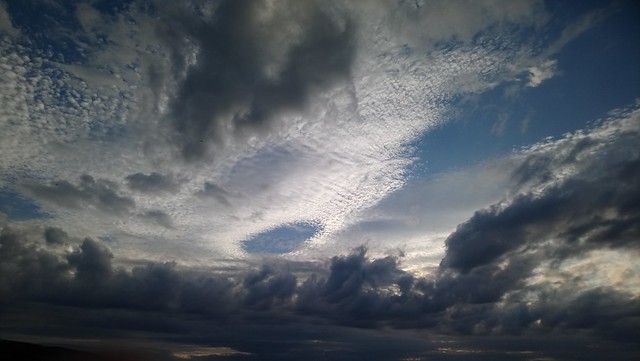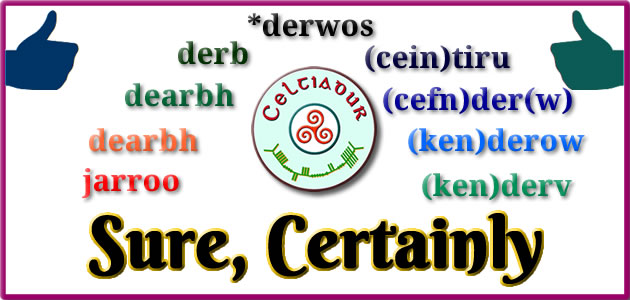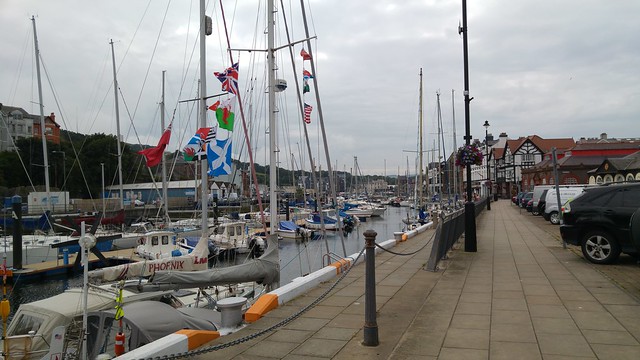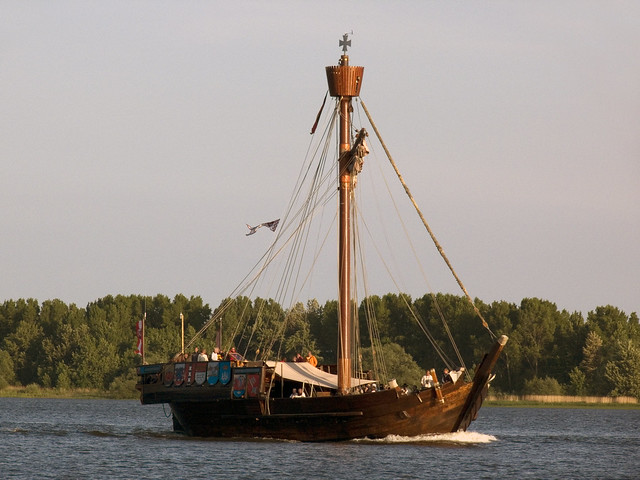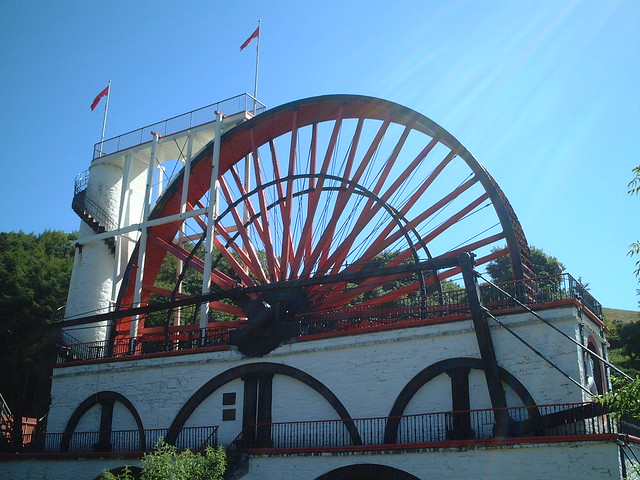Words for duty, debt, law, rule and related things in Celtic languages.

Scottish Parliament / Pàrlamaid na h-Alba / Scots Pairlament
Words marked with a * are reconstructions.
| Proto-Celtic |
*dligeti = to be entitled to, be obligated to |
| Old Irish (Goídelc) |
dligid = to deserve, merit, be entitled to |
| Middle Irish (Gaoidhealg) |
dligid, dleagaid = to be entitled to, have a right to, be owed, deserve, merit |
| Irish (Gaeilge) |
dligh [dʲlʲɪɟ/dʲlʲiː] = to be entitled to, have a right to, deserve, merit, be incumbent on, be liable to, ought to |
| Scottish Gaelic (Gàidhlig) |
dligh [dli] = owe, be due
dleas [dles] = deserve, merit, due
dleasach [dlesəx] = deserving, meriting
dleasadh [dlesəɣ] = (act of) deserving, meriting
dleasannas [dlesən̪ˠəs] = obligation, duty
dleasanta [dlesən̪ˠdə] = deserving, meriting
dleasnach [dlesn̪ˠəx] = dutiful
dleastanas [dlesdənəs] = obligation, duty |
| Manx (Gaelg) |
toill = to deserve, will
toillchin = to deserve, earn, merit, reward; derserving, worthy
toillchinagh = deserving, meritorious
toillchinys = desert, merit
toillchyn = to deserve, merit
toilliu = to deserve, earn, merit; deserving, worthy |
| Proto-Brythonic |
*dɨlɣɨd = ? |
| Middle Welsh (Kymraec) |
deleu, dyly, dylu = to be obliged to, ought, be indebted, behove, owe, be in debt, have a right to, claim, merit, deserve, posses, claim from |
| Welsh (Cymraeg) |
dylu [ˈklɛðɨ̞v/ˈkleːðɪv] = to be obliged to, ought, be indebted, behove, owe, be in debt, have a right to, claim, merit, deserve, posses, claim from (other forms include: dylaf, dylÿaf, dlyaf, dylÿu, dlyu, dleu, deleu) |
| Middle Cornish (Cernewec) |
dely, dylly = to owe, deserve |
| Cornish (Kernewek) |
tyli = to owe, pay, reward
tylva = checkout, till |
| Middle Breton (Brezonec) |
dleout = must |
| Breton (Brezhoneg) |
dleout [ˈdleː.ut] = to have to, must, owe
dleañ = to have to, must, owe; judicious |
Etymology: from Proto-Indo-European *dʰlégʰ-ti/*dʰl̥gʰ-énti, from *dʰlegʰ- (to beat, strike) [source]. Words from the same PIE roots possibly include dolog (thing, object, affair, business, task, fate) in Hungarian, dług (debt, account payable) in Polish, долг (dolg – debt, duty, obligation) in Russian, and dlh (debt) in Slovak [source].
| Proto-Celtic |
*dligetom = duty, debt |
| Old Irish (Goídelc) |
dliged, dligeth [ˈdʲlʲiɣʲeð] = law, principle, rule, theory, dictum
dlecht = lawful
dligthech = lawful, right |
| Middle Irish (Gaoidhealg) |
dliged, dligeth, dleged = law, principle, rule, norm, dictum, reason, argument, reckoning, nature, condition, kind, manner
dligedach = lawful
dligemnas = lawful right
dligthech = regular, right, lawful, law-abiding, rational, reasonable, just, righteous
dligthe(m)nach, dligtheanuigh = lawgiver
dligtheoir = lawyer, man of law |
| Irish (Gaeilge) |
dlí [dʲlʲiː] = law, divine precept, scientific principle, litigation
dlíodóir = lawyer
dlíodóireacht = practice of law, practising law
dlíthí = litigant
dlíthíoch = litigious
dlíthíocht = litigiousness
dlíthiúil = legal, juridicial, lawful, litigious
dlíthiúilacht = legality, lawfulness
dleacht = due, lawful right, royalty, patent
dleathach = lawful, legal, valud, genuine, just, proper
dleathaíocht = legality, justice, propriety |
| Scottish Gaelic (Gàidhlig) |
dlighe [dli.ə] = ordinance (in law), due
dligheach [dli.əx] = lawful, legitimatem rightful, right, due, dutiful, just
dligheachas [dli.əxəs] = lawful right, jurisdiction, validity
dligheachd [dli.əxg] = legality, royalty (payment)
dligheadh [dli.əɣ] = (act of) owing, being due, stipend
dlighear [dli.ər] = lawyer, creditor
dligheil [dli.al] = legitimate, lawful, rightful |
| Proto-Brythonic |
*dlɨɣed = (?) |
| Middle Welsh (Kymraec) |
delehet, deleed, dylyet, dlyet, dylet = debt, due, claim, right, demand, oblitation, duty
dylyedawc, dylyedauc, dylyedaỽc dyledawg = noble, privileged, dignified, illustrious, rightful
dyledogaeth, dlyedogaeth = nobility, lordship, proprietorship
dylyedus, dyledus = due, proper, meet, lawful, worthy, just, necessary, requisite, owing, in debt, indebted
dyledwr = debtor, defaulter, trespasser |
| Welsh (Cymraeg) |
dyled [ˈdəlɛd] = debt, due, claim, right, demand, oblitation, duty, service, heritage, estate, worth, privilege, sins, transgressions, trespasses [also written dylêd, dled, dylyed, dlyed]
dyled(i)ach = trifling debts, dribbling debts
dyledu = to owe, be due, debit, make due
dyledog = indebted, in debt, due, noble, privileged, dignified, illustrious, debtor
dyl(y)edus = due, proper, meet, lawful, worthy, just, necessary, requisite, owing, in debt, indebted, noble, privileged, dignified, reasonable, sensible, understanding
dyledwr = debtor, defaulter, trespasser |
| Middle Breton (Brezonec) |
dle = due, owing
dleat = moral duty, tax |
| Breton (Brezhoneg) |
dle = due, owing, debt
dlead = moral duty, tax
dleatour = debtor
dleapl = liable
dleoniezh = ethics
d(e)leour = debtor, creditor |
Etymology: from Proto-Celtic *dligeti (to owe, be indebted to) – see above [source].
| Proto-Celtic |
*ká(g)ni- = tribute, law |
| Old Irish (Goídelc) |
cáin [kaːnʲ] = law, regulation, rule, fine, tax, tribute, legal due |
| Middle Irish (Gaoidhealg) |
cáin, cain = law, regulation, rule, fine, tax, tribute |
| Irish (Gaeilge) |
cáin [kɑːnʲ/kaːnʲ] = law, regulation, rule, due, tribute, fine, penalty, impost, tax
cáinaisnéis = budget
cáinaisnéiseach = budgetary |
| Scottish Gaelic (Gàidhlig) |
càin [kaːn̪ʲ] = duty, tariff, tribute, fine; body of laws (archaic)
càin-aisneis = budget
càineach, càinear, càiniche = tax/excise collector, tax gatherer
càineachadh [kaːn̪ʲəxəɣ] = (act of) imposing a tax |
Etymology: possibly from Proto-Indo-European *keh₂/₃ǵ-n- [source]. Words from the same root may include kázeň (discipline) in Czech, kaźń (execution, torture, torment) in Polish, and kázeň (sermon, discipline) in Slovak [source].
| Old Irish (Goídelc) |
cís = tax, tribute |
| Middle Irish (Gaoidhealg) |
cís, cis, cíos = tax, tribute, cess, rent
císach = receiving or exacting tribute
císaige = tributary, rent-payer
císugud = paying tribute |
| Irish (Gaeilge) |
cíos [ciːsˠ] = rent, price; tax tribute (historical)
cíosach = rent-paying, tributary
cíosaí = rent-payer
cíosaigh = to rent, pay rent for, compensate for
cíoscháin = tribute
cíoscheannach = hire-purchase |
| Scottish Gaelic (Gàidhlig) |
cìos [kʲiəs] = tribute, tax
cìs [kʲiːʃ] = tax, levy
cìsachadh [kʲiːʃəxəɣ] = taxing, taxation
cìsachas [kʲiːʃəxəs] = taxation
cìseadair [kʲiːʃədɪrʲ] = exciseman
cìsear [kʲiːʃər] = tax/excise collector, tax gatherer |
| Manx (Gaelg) |
keesh = custom, duty, tax, toll, tribute, contribution
keeshagh = assessable, taxable, tributary
keeshyn = taxation, taxes, tribute, dues |
Etymology: from Latin cēnsus (census, register, rich gifts, presents, wealth), from cēnseō from Proto-Italic *kensēō (to give an opinion), from *kensējō, from Proto-Indo-European *ḱenséh₁-ye-ti, from *ḱens- (to announce, proclaim, put in order). Words from the same roots may include census in English, censo (census, wealth) in Italian, Zins (interest, tribute) in German, and czynsz (rent) in Polish [source].
| Proto-Celtic |
*rextus = rule, law
*kom-rextus = law (?) |
| Celtiberian |
Retukeno = personal name |
| Gaulish |
Rextugenos = personal name |
| Old Irish (Goídelc) |
recht, rect [r͈ʲext] = law
rechtach = law-giving
rechtaid = lawgiver
rechtaide = legal
rechtaigid = to legislate
rechtaire = steward
rechtas = stewardship
rechtge = government
rechtmar = lawful |
| Middle Irish (Gaoidhealg) |
recht, rect, reacht = law, authority, rule, right, lawfulness
rechtach = just, equitable, law-giving
rechtaid, rechtaidh = judge, lawgiver
rechtaide = legal, pertaining to the law, lawful
rechtaigid = to legislate
rechtaire, rechtorairge = steward, baliff, administrator, judge (?)
rechtas, rechtus, rechtcus = authority, administration, stewardship
rechtge, rechtga = government, authority, rule, regin
rechtmar = lawful, legitimate |
| Irish (Gaeilge) |
reacht [ɾˠaxt̪ˠ] = law, statute, accepted rule
reachtach = law-giving, legislative
reachtaigh = to legislate, enact, decree
reachtaíocht = legislation
reachtaire = controller, administrator, steward, Rector, auditor, master of ceremonies
reachtas = administration, stewardship
reachtmhar = lawful, legitimate
reachtóir = lawgiver, legislator
reachtúil = statutory, statute |
| Scottish Gaelic (Gàidhlig) |
reachd [r̪ˠɛxg] = decree, statue, edict
reachdach [r̪ˠɛxgəx] = compulsory
reachdachadh [r̪ˠɛxgəxəɣ] = (act of) legislating, law-making, legislature
reachdadair [r̪ˠɛxgədɪrʲ] = lawmaker, legislator
reachdadaireachd [r̪ˠɛxgədɪrʲəxg] = legislature
reachdail [r̪ˠɛxgdal] = legislative, statutory
reachdas [r̪ˠɛxgəs] = legislation |
| Proto-Brythonic |
*rreiθ = rule, law
*kuβ̃reiθ = law (?) |
| Middle Welsh (Kymraec) |
reyth, reith, rhaith = law, rule, decree, rightness, justice, right (to smth), recompense, atonement, judgement, verdict
cyfreith, kiureith, kefreyth [ˈkəvrai̯θ] = law, rule, decree, rightness, justice, right (to smth), recompense, atonement, judgement, verdict |
| Welsh (Cymraeg) |
rhaith [r̥ai̯θ] = law, rule, decree, rightness, justice, right (to smth), recompense, atonement, judgement, verdict
rhaithgor = jury
cyfraith [ˈkəvrai̯θ] = law, legislation, statute, custom, usage, jurisprudence |
| Cornish (Kernewek) |
reyth = regular, right, religious law
reythennek, reythednek = statutory
reythen = statute
reythe = to authorise, codify, empower, entitle, qualify
reythes = authorised, empowered, enacted, entitled, qualified
reythyans = enactment, jurispridence, lawmaking, legislation |
| Old Breton (Brethonoc) |
reith = law |
| Middle Breton (Brezonec) |
rez, reiz = law
rezder = law |
| Breton (Brezhoneg) |
reizh = right, just, correct, order, normal
reizhad = regular
reizhadenn = rectification, corrected
reizhadur = adjustment
reizhan = to correct, adapt, regular, initiate
reizhded = correctness, rectitude, normality
reizhder = regularity
reizhegezh = legitimacy
reizhek = legitimate
reizhekaat = to legitimize
reizhennan = to regulate
reizhus = legal |
Etymology: from Proto-Indo-European *h₃reǵ- (to straighten, to righten) [source]. Words from the same PIE root include rail, rank, realm, regime, rule and regulation in English, rę́žti (to stretch) in Lithuanian, règle (rule, regulation) in French, and regla (rule, ruler) in Spanish [source].
| Old Irish (Goídelc) |
ríagal, ríagul = rule |
| Middle Irish (Gaoidhealg) |
ríagal, riagoil, riaguil = rule, authority |
| Irish (Gaeilge) |
riail [ɾˠiəlʲ] = rule, regulation, principle, sway, authority, order
rialachán = regulation
rialúchán = regulation, control |
| Scottish Gaelic (Gàidhlig) |
riaghail [r̪ˠiə.al] = rule, govern, administer
riaghailt [r̪ˠiə.əldʲ] = rule, regulation, government
riaghailteach [r̪ˠiə.əl̪ˠdʲəx] = regular, according to rule, orderly
riaghailteachadh [r̪ˠiə.aldʲəxəɣ] = (act of) formulating, regulating, adjusting, adjustment
riaghailteachas [r̪ˠiə.aldʲəxəs] = regulatory
riaghailteachd = regularity, moderation
riaghailtear [r̪ˠiə.aldʲər] = regulator
riaghailtearachd [r̪ˠiə.aldʲərəxg] = administration
riaghal [r̪ˠiə.əl̪ˠ] = rule |
| Manx (Gaelg) |
reill = code, dominion, governance, policy, principle, reign; to charge, govern, order, regulate, rule
reilley = to regulate, reign, rule; ruling
reilleyder = governor, regulator, ruler, straight edge
reilt = normal, to rule
reiltagh = director, ordinal, president, rector, ruler; decisive, ruling, regular
reiltys = governance, rule, kingdom, dominion, government |
| Proto-Brythonic |
*rreɣol = rule (?) |
| Middle Welsh (Kymraec) |
ryol, reol, rhwol = rule, regulation, procedure, order, custom, pattern, government, dominion
rhyolaeth, reolaeth = rule, control, management, authority, discipline
rwyoli, reoli, ryoli, rhywoli = to rule, control, direct, govern
roliad = rule, control, government
ryolus, reolus, rheolus, rreolys = regular, orderly, disciplined, moderate, consant |
| Welsh (Cymraeg) |
rheol [ˈr̥eː.ɔl] = rule, regulation, procedure, order, custom, pattern, government, dominion
rheol(i)aeth = rule, control, management, authority, discipline
rheoli = to rule, control, direct, govern
rheolaidd = regular, regulated, orderly
rheoliad = rule, control, government
rheolus = regular, orderly, disciplined, moderate, consant |
| Middle Cornish (Cernewec) |
reol, rowl, rovle = rule, government
rowler = ruler, governor |
| Cornish (Kernewek) |
rewl, rowl = regulation, rule
rewlya, rowlya = to control, regulate, rule
rewlyades, rowlyades = ruler (f)
rewlyas, rowlyas = ruler (m)
rewlys = regular |
| Old Breton (Brethonoc) |
regul = rule, regulation |
| Middle Breton (Brezonec) |
reul, reol, reoll = rule, regulation
reulenn = rule
reulennaff = to regulate |
| Breton (Brezhoneg) |
reol = rule, principle, regime
reolennadur = regulation
reolennan = to regulate
reoliadur = regulation
reoliata = to regulate
reoliek = regular
reolius = regulatory |
Etymology: from Latin rēgula (rule, bar, ruler), from regō (I rule, govern, direct, guide, steer, control), from Proto-Italic *regō, from Proto-Indo-European *h₃réǵeti (to be straightening, to be setting upright), from *h₃reǵ- (to straighten, to righten) – see above [source].
| Scottish Gaelic (Gàidhlig) |
lagh [l̪ˠɤɣ] = law
laghachd [l̪ˠɤɣəxg] = legislation
laghadh [l̪ˠɤɣəɣ] = legalising, legalisation
laghaiche [l̪ˠɤɣɪçə] = lawyer, solicitor
laghaichte [l̪ˠɤɣɪçdʲə] = legalised
laghail [l̪ˠɤɣal] = legal, lawful, litigious, argumentative
laghaileachd [l̪ˠɤɣaləxg] = lawfulness, legality |
| Manx (Gaelg) |
leigh = enactment, law, respect
leighagh = legal, litigious
leighder = lawyer, advocate, attorney, barrister, council
leighoil = lawful, legal, legislative, legitimate |
Etymology: from English law, or Middle English lawe/laȝe (law, regulation, morality), or Old English lagu (law, rule, right), all of which come from Old Norse lǫg (law, rule, right), from Proto-Germanic *lagą (situation, law, a settled amount), from Proto-Indo-European *legʰ- (to lie [down]). The English words lie and lay come from the same roots [source].

Sources: Wiktionary, Etymological Dictionary Of Proto Celtic, In Dúil Bélrai English – Old Irish glossary, eDIL – Electronic Dictionary of the Irish Language, Teanglann.ie, Am Faclair Beag, An etymological dictionary of the Gaelic language, Fockleyreen: Manx – English Dictionary, Online Manx Dictionary, Gaelg Corpus, Geiriadur Prifysgol Cymru, Lexicon cornu-britannicum : a dictionary of the ancient Celtic language of Cornwall, Gerlyver Kernewek, Devri : Le dictionaire diachronique du breton, Dictionnaires bilingues de Francis Favereau / Edition Skol Vreizh, TermOfis






